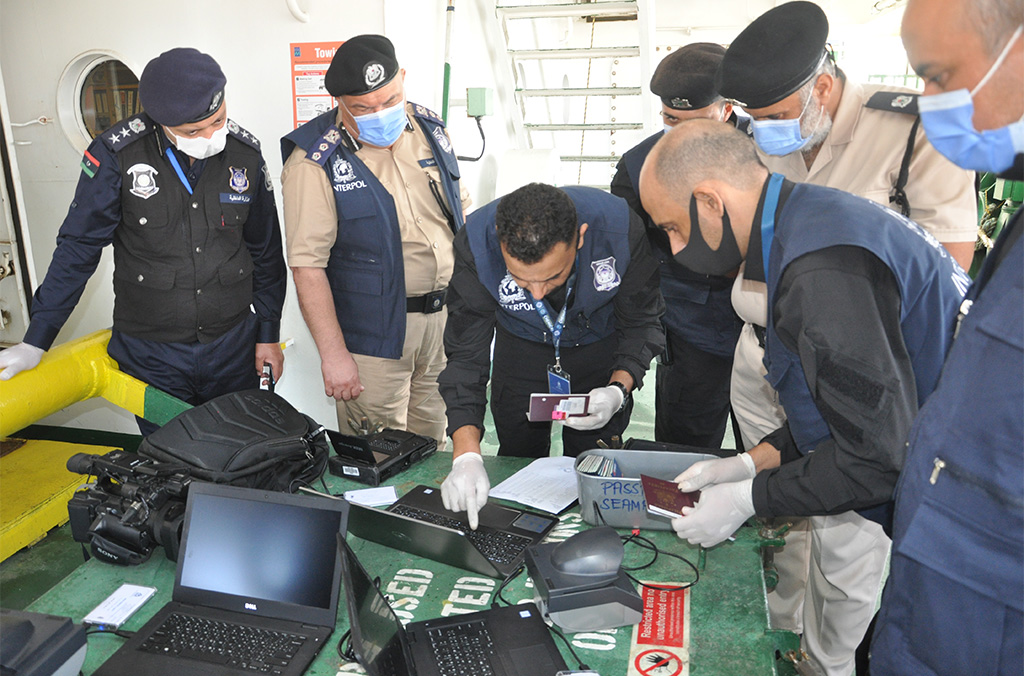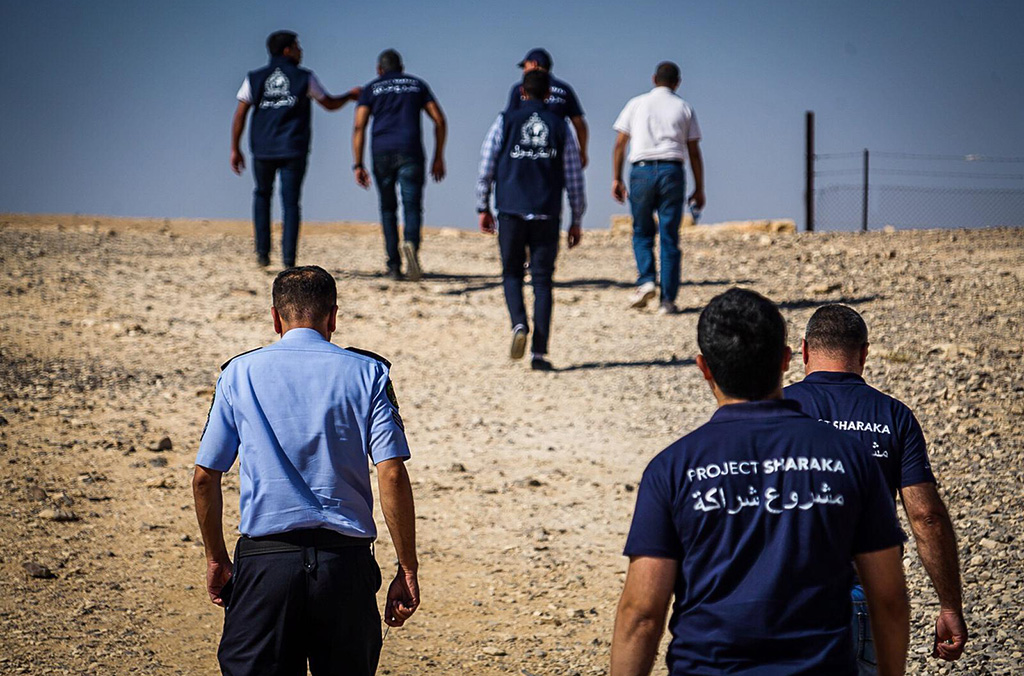Strong border security is the first line of defence in preventing the travel of terrorists.
Funded by the European Union, Project Sharaka brings INTERPOL policing tools and expertise to frontline officers in eight countries: Algeria, Egypt, Jordan, Lebanon, Libya, Morocco, Palestine and Tunisia.
The objective is to help these countries detect and intercept terrorist individuals and groups through technology, capacity building and police operations.
Preventing terrorists from crossing borders
Project Sharaka connects frontline agencies to I-24/7 (INTERPOL’s secure, global police communications network), particularly at airports, seaports and national borders. This enables them to share intelligence in real time and to access our range of global criminal databases.
With stolen travel documents used by terrorists, particularly foreign terrorist fighters returning from conflict zones, it is particularly important that border security officers have direct access to INTERPOL’s database of stolen and lost travel documents.
This project makes sure the target countries have the counter-terrorism expertise, equipment and skills they need. Frontline officers are trained on how to use INTERPOL’s range of global criminal databases during regional investigations and operations.
Case study: seaport operation in Libya
An operation carried out by Libyan authorities at the seaport of Khoms in October 2020 shows the practical support that Project Sharaka can give to its participating countries.
Led by the INTERPOL National Central Bureau (NCB) in Tripoli, in cooperation with the Customs department, the Criminal Investigation Service and other security agencies, the operation boosted ongoing information exchange and expanded access to INTERPOL’s databases.
The Project Sharaka team gave remote operational and technical support to NCB Tripoli, and provided devices for mobile connection to INTERPOL’s databases and biometric devices to collect fingerprints.
More than 30 Libyan police officers were deployed to screen individuals and their passports; collect fingerprints and facial images from suspected crew members; and inspect vessels, vehicles and cargos. Over two days, officers carried out more than 400 checks against INTERPOL databases and intercepted two containers of illegal substances.

Generating regional intelligence
On-the-ground investigations are backed up by strategic intelligence, developed collectively by the participating countries. In this way, countries can identify the working patterns of terrorist criminal networks, detect emerging threats, and send early warnings across the region.
Project INTERPOL South ‘Sharaka’ is funded by the European Union. The views expressed herein can in no way be taken to reflect the official opinion of the European Union.




